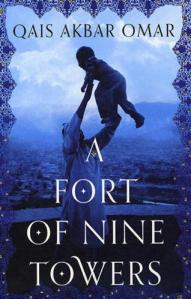
Sometimes, a novel with an agenda can be a great read too, like this one by Muriel Mharie Macleod.
Louisiana in the beginning of 20th century US is no place for brave spirits like Arletta Johnson, a black girl who is compelled to escape the land of her birth and seek a life of freedom and dignity as a missionary in Africa.
They may no longer legally be slaves to white men, but even the government is ambiguous about black welfare. Arletta’s mother Mambo notes “how they used to stop us blacks having any schooling all ‘cause they didn’t think we were up to being educated and how now they’re telling us we gotta go.”
National and world politics play out in the backdrop, but life for poor blacks like Arletta remains miserable as ever. As Mambo observes with earthy wisdom, “ain’t no white folk ever share nothing with any of us.” Jobs are hard for blacks to come by, with white people accusing blacks of trying to escape military service, “like we ain’t got no right to be getting on the same as anybody else.” ...
The author does an amazing job of bringing the world of black people in early 20th century Louisiana to vivid life. Her accuracy and empathy for the characters is even more striking since she herself was born and brought up in remote Scotland, and has no direct link with the culture she portrays so well. This novel would be engaging and illuminating enough as a historical tale. However, Arletta’s journey of regaining her life and dignity takes on even broader and more timeless implications because of the underlying theme of child sexual abuse.
One drawback of this novel is that major characters are either angels or baddies, without enough shades of gray. Arletta wins our admiration for her courage, generosity and resolve. However, she also seems too good to be true. She readily forgives her mother for her past neglect and insensitivity. She reconciles too easily with her mother’s new partner, Quince, and showers her little stepsister with undiluted love. There’s no hint of regret or jealousy for the love and security, which the stepsister enjoys, and which was denied to Arletta.
Pappy hovers in the background as the departed wise and loving grandfather cum guardian angel. Mr MacIntyre and Mr Seymour are archetypal white villains, who ruthlessly prey on innocent little girls for their perverted sexual gratification. They are straw-stuffed effigies who deserve to be burnt, and they don’t have a shred of a saving grace or human quality between them. In contrast, Arletta’s landlady Mrs Archer-Laing, is a benign white do-gooder and champion of black equality.
Some of these one-dimensional characters have implausible turnarounds, which seem more for the sake of conveniently wrapping up the story. Mambo’s metamorphosis from negligent and insensitive mother to a loving champion for Arletta’s cause, is unconvincing. Equally incredible is Quince’s change from a good-for-nothing philanderer to a responsible partner and loving father and stepfather.
That being said, Arletta’s courageous story holds our attention till the end. Her world is brought home to us with memorable descriptions and lifelike dialogues, and the plight of sexually abused young girls is vividly portrayed to move the hardest hearts.

